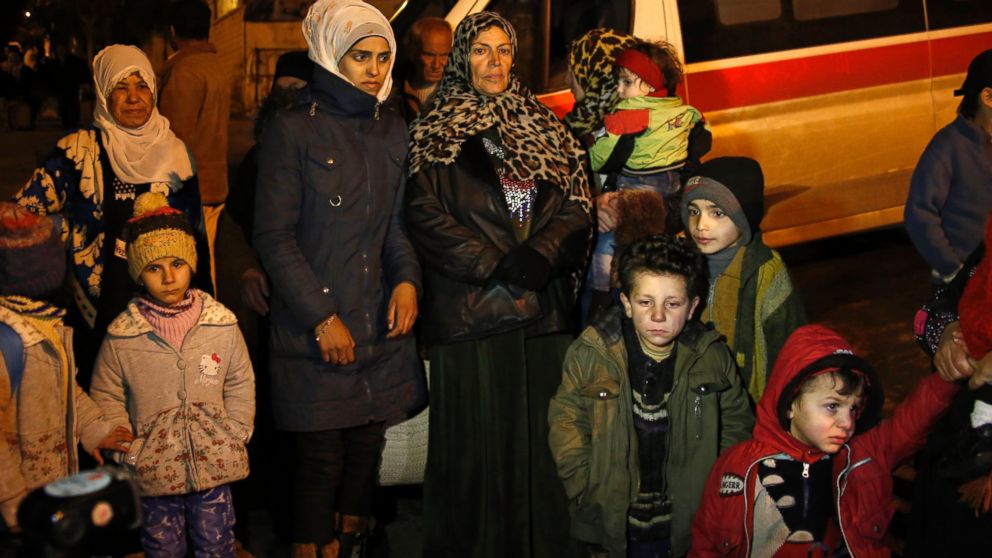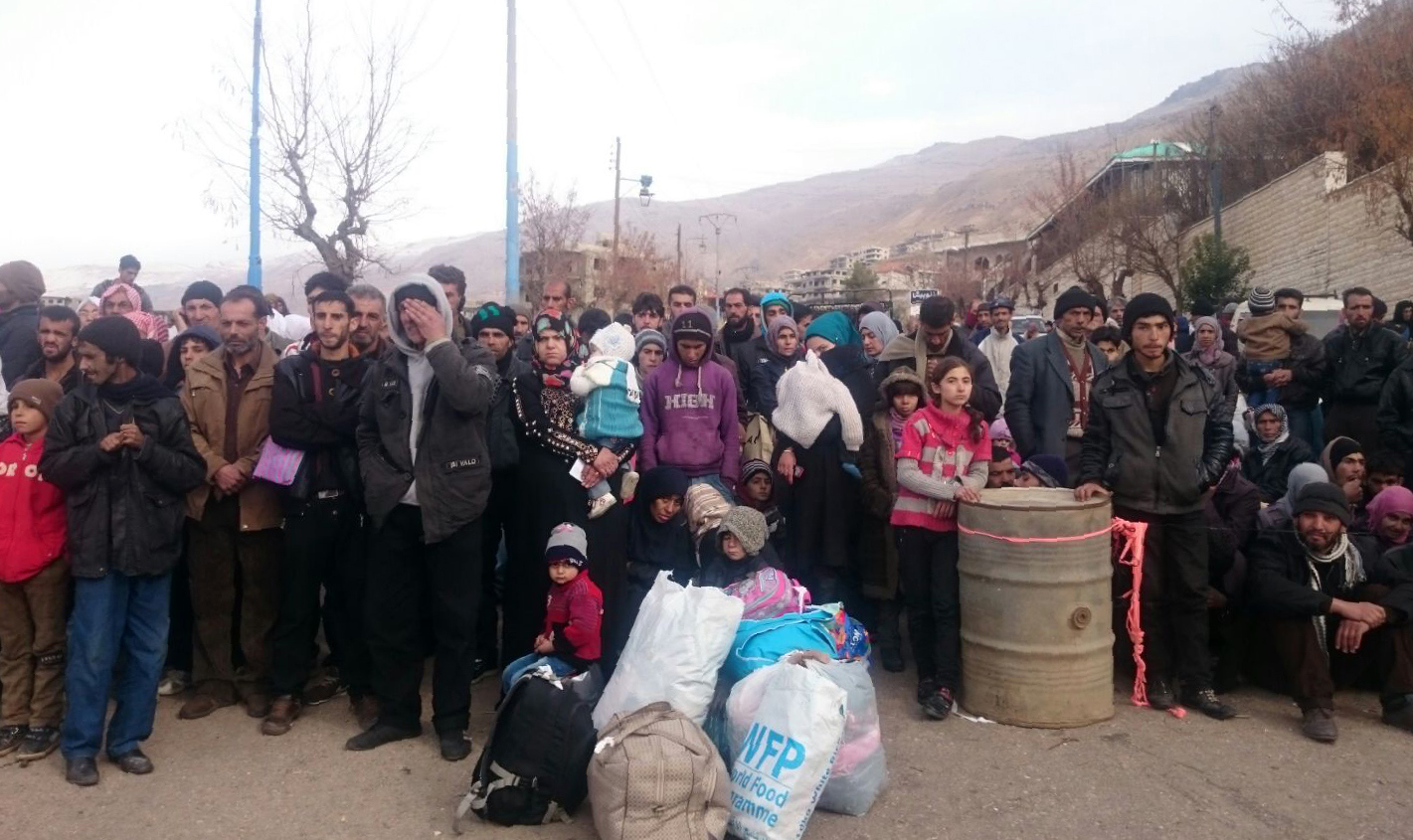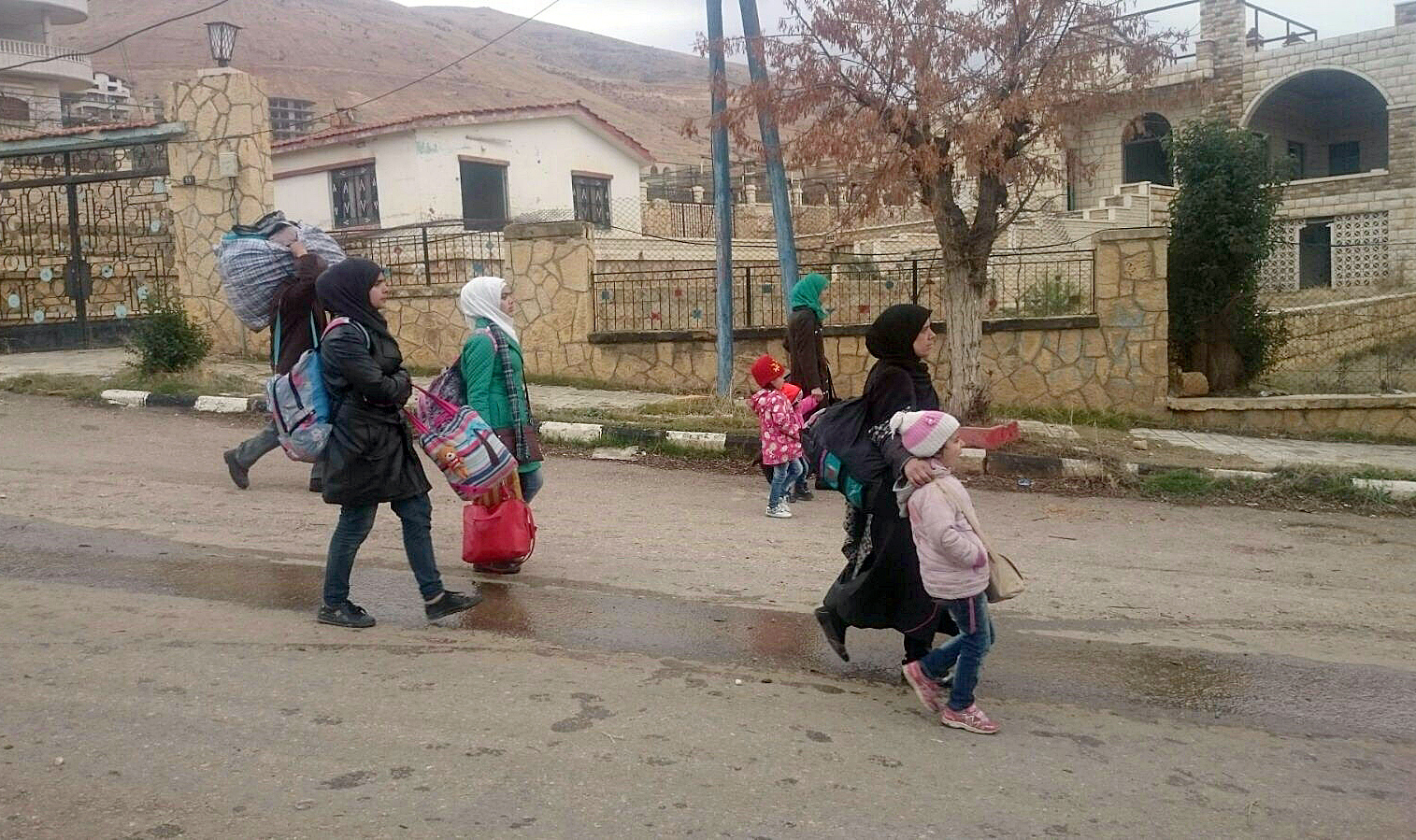Besieged Madaya, Syria, Residents Describe Starvation, 'Heartbreaking' Conditions

LONDON— -- Several residents of the besieged Syrian town of Madaya have been able to leave one day after aid convoys were allowed in amid reports of widespread starvation.
While the arrival of convoys was applauded by the international community, United Nations humanitarian chief Stephen O'Brien told reporters that at least 400 people are in urgent need of medical treatment and should be evacuated.
“We are suffering from anemia and many other diseases,” an unnamed resident who managed to leave Madaya told BBC News, before adding: “We have no food, even bread. There’s no water, no electricity, no heating, our children cry all night, we are unable to feed them.”
It is unclear how many people have left Madaya in the past 24 hours.

Madaya was a topic of discussion Monday at a U.N. meeting in New York, where New Zealand U.N. Ambassador Gerard van Bohemen told reporters "the tactic of siege and starvation is one of the most appalling characteristics of the Syrian conflict.”
U.S. Ambassador Samantha Power said, “Look at the haunting pictures of civilians, including children, even babies,” before adding, "these images, they remind us of the second world war.”
The World Health Organization has asked the Syrian government for permission to send mobile clinics and medical teams in to assess the extent of malnutrition, according to a written statement from the organization.

WHO representative Elizabeth Hoff said a door-to-door assessment was needed. So far, 7.8 tons of medical aid, including trauma kits for wounds and medications for treating chronic and communicable diseases, have been delivered, Hoff said.
The multiagency aid convoys were able to enter the city of Madaya, where about 40,000 people live, only after an agreement was made with the government to also deliver aid to the rebel-held cities of Foua and Kefraya.
On Monday, aid workers described seeing crowds of hungry children: "It's heartbreaking to see so many hungry people," Sajjad Malik, a representative for the United Nations High Commissioner for Refugees in Syria, said.
Doctors Without Borders says 23 people have died of starvation since Dec. 1, including six young than 1.
“I know someone who caught cats, slaughtered them and gave them to his mother, pretending they were rabbits. I know other people who collected their food from the trash and others who ate grass,” one resident who was not named told BBC News.
"The aid convoy to Madaya has been delivered using 44 trucks and contained 7,800 food parcels, enough for 40,000 people, babies food, pregnant women special nutrition, high energy food, medical supplies, various medicines and 20,000 blankets," the Syrian Arab Red Crescent Society said a written statement.
"The people were coming every five minutes asking, 'Listen, did you bring food, did you bring medicine?' Some are smiling and waving at us but many are just simply too weak, with a very bleak expression, too tired," spokesman Pawel Krzysiek of the International Committee of the Red Cross (ICRC) said.
"The aid convoy to Kefraya and Foua has been delivered using 21 trucks and contained 4,000 food parcels enough for 20,000 people, babies food, pregnant women special nutrition, high energy food, medical supplies, various medicines and 10,000 blankets," the ICRC added.
Up to 400,000 people in 15 besieged locations of Syria do not have access to the aid they desperately need, according to the United Nations, and in the past year, only 10 percent of all requests to access these areas were approved, followed by deliveries.




